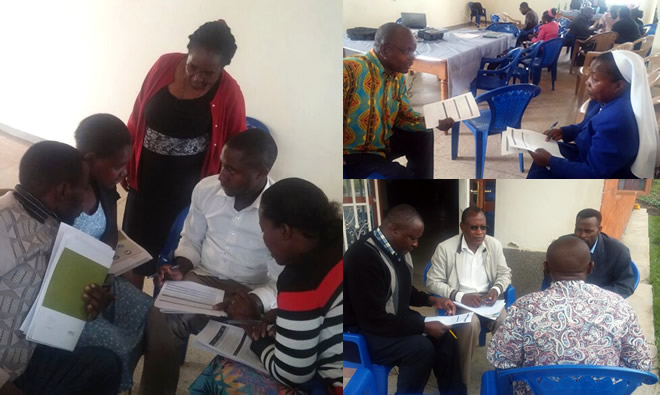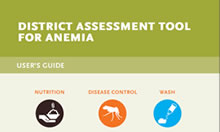
SPRING/Uganda partnered with another USAID-funded project, Regional Health Integration to Enhance Services in Southwest (RHITES/SW), to strengthen efforts to reduce stunting and anemia in the southwestern region of Uganda.
In Uganda, anemia affects more than half of children under five years of age and a third of women of reproductive age, according to the preliminary results of the 2016 Uganda Demographic Health Survey. To improve understanding of the causes of anemia at the district level, SPRING piloted the District Assessment Tool for Anemia (DATA) in Uganda over the past year.
DATA has been used to motivate district-level program managers and planners across the different sectors to collect the necessary information on the causes and coverage of anemia at the district level. The tool will also help them identify gaps in programming and prioritize interventions and actions to strengthen anemia-related programming.
Through SPRING’s partnership with RHITES/SW, DATA was rolled out in four southwestern districts. Use of DATA enhanced the capacity of district officials to prioritize key actionable activities to reduce anemia. These activities were completed through existing platforms like the District Nutrition Coordination Committees and District Health Management Committees. RHITES will also support operationalization of some of the prioritized actions and routinely monitor key outputs.
Moses Walakira, Technical Director, Elizabeth Glaser Pediatric AIDS Foundation and RHITES/SW project, says, “Our partnership with SPRING/Uganda dates way back. We knew SPRING’s DATA approach would be great for our project activity, which is why we got into the partnership.”
Regarding the tool, he says, “The DATA tool is going to play a great role in the prevention and control of anemia because it will help district officials to understand the multi-sectoral nature of anemia programing. They are learning how the different departments, and not just the health department, can contribute to the prevention and control of anemia.”
He adds, “The tool has a planning aspect which departments can use to identify actions to integrate in their work plans. When that is done, it is only a matter of time before we see changes that should help reduce anemia in southwestern Uganda.”
RHITES is committed to roll out DATA in the remaining 11 districts in the region. They will also provide routine technical assistance to departments already using DATA, helping to implement prioritized actions at the district level. Additionally, RHITES will help districts integrate their plans during the budgeting process.
